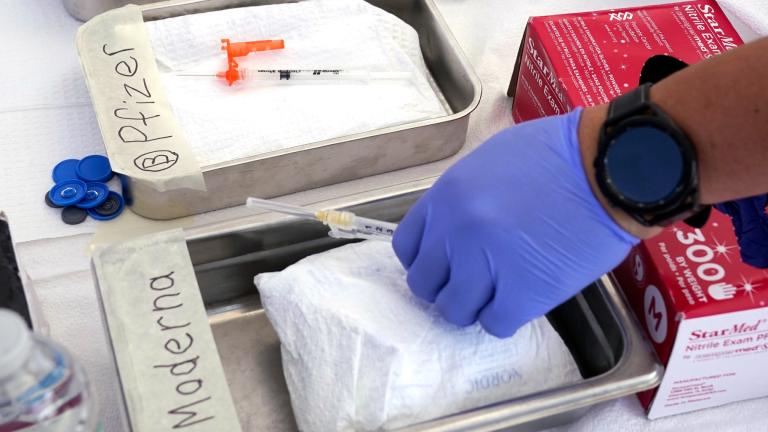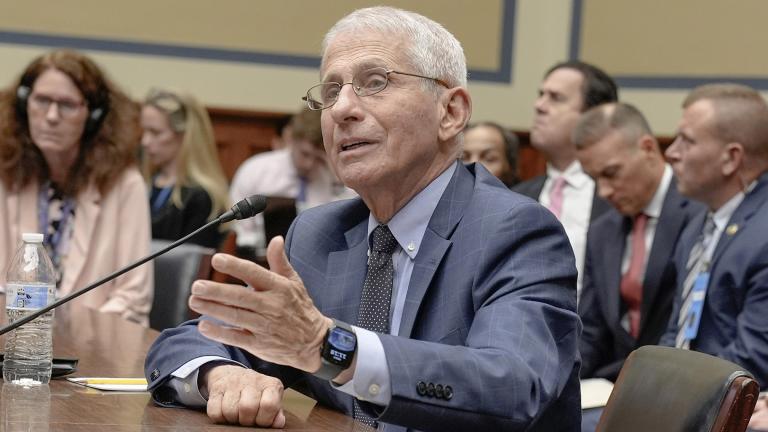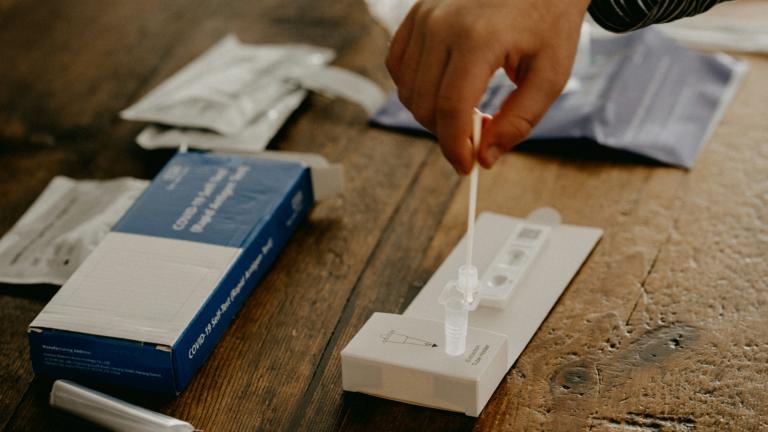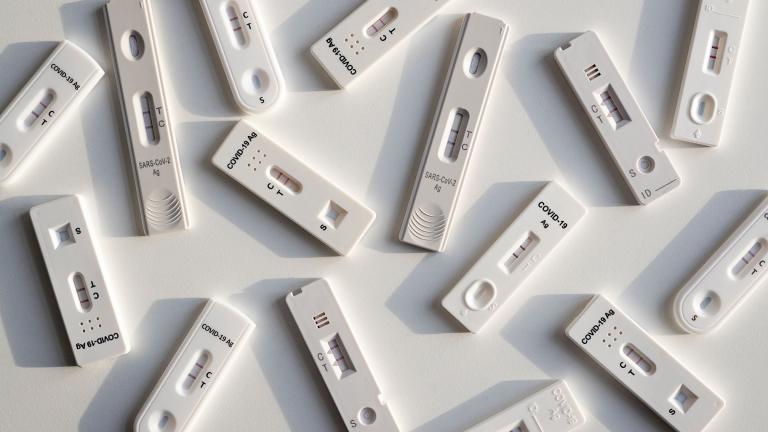Video: Illinois is expanding eligibility for the COVID-19 vaccine. Amanda Vinicky has details on “Chicago Tonight.”
With federal vaccine supplies steadily increasing, Illinois later this month will begin vaccinating people ages 16 and older who have certain underlying health conditions and complicating factors but are not otherwise eligible for the vaccine, Gov. J.B. Pritzker announced Wednesday.
“As quickly as we receive enough vaccine supply, we need to waste no time in protecting a broader section of our most vulnerable population,” Pritzker said in a statement. “Those who are under 65 and live with comorbidities, such as cancer survivors or those living with heart disease, have an elevated risk of serious complications or death if they contract COVID-19.”
The expansion of phase 1B eligibility is in accordance with guidelines from the Centers for Disease Control and Prevention and is subject to change as guidance evolves, according to the governor’s office.
Staring Feb. 25, people who have the following conditions and illnesses will be eligible for vaccination: cancer, chronic kidney disease, chronic obstructive pulmonary disease, diabetes, heart condition, sickle cell disease, pulmonary disease and obesity.
People who are in an immunocompromised state from a solid organ transplant and those who are pregnant are also eligible.
The move gets the state “closer to the point when the vaccine is widely available to all who want it,” Pritzker said. “In the meantime, I encourage all Illinoisans to wear our masks and follow the mitigations so that more of our neighbors are healthy and alive when it’s their turn in the vaccination line.”
The governor’s administration will work with local health departments and providers across the state to include these additional groups into their community vaccination plans. Health departments that have substantially completed vaccinating their existing phase 1B population prior to Feb. 25 will be allowed to begin vaccinating those with underlying conditions sooner.
While Chicago Department of Public Health Commissioner Dr. Allison Arwady says she’d like more people to be vaccinated, she says the city is only getting enough vaccine for 5% to 10% of Chicagoans who are already eligible.
The expansion of eligibility may make sense in other parts of Illinois, where there is ample supply, Arwady said.
“But here in Chicago, if we add additional people right now, all we do is make it harder for people who are already eligible to get that vaccine,” Arwady said. “It would make it harder for us to get it to the people over 65. It would make it harder for us to get it into the hardest hit communities because it dilutes the amount available.”
Under the city’s vaccine rollout plan, all essential workers as well as Chicagoans age 16 and older with underlying health issues will be eligible to get vaccinated as of March 29, if there is ample supply.
More than 900,000 Chicagoans would be eligible in the next phase of the effort, Arwady said.
The city does not have “anywhere near” enough vaccine to meet that demand, Arwady said.
Chicago is getting approximately 6,000 doses of the vaccine every day, an increase of about 300 doses, Arwady said.
Eligible residents can find nearby vaccination sites on the state’s coronavirus website. The site also provides residents with information on how to make an appointment, updates on the state’s vaccination plan and answers to frequently asked questions about the vaccine.
State officials also provided links to Walgreens, Jewel Osco and HyVee for eligible residents to schedule appointments for vaccinations.
The state has received more than 2.1 million COVID-19 vaccines and more than 1.4 million COVID-19 doses have been administered, including 223,790 in long-term care facilities, according to the Illinois Department of Public Health. Just over 2.5% of the state’s population has been fully vaccinated, according to state vaccine data.
On Wednesday, state health officials announced 2,825 new confirmed and probable cases of COVID-19 and 53 additional deaths. Since the start of the pandemic last year, there have been 1,152,995 cases and 19,739 deaths in Illinois.
The seven-day statewide positivity rate for cases as a percentage of total tests is 3.3%, which is the lowest it’s been since last July, according to Pritzker.
Test positivity across the state — the number of positive tests as a percentage of total tests — is 4%. That rate is higher in suburban Cook County (4.8%) and Chicago (4.5%), IDPH regional data shows.
As of Tuesday night, 2,082 people were hospitalized with COVID-19, and of those, 464 patients were in intensive care units and 232 were on ventilators, according to IDPH.
Note: An earlier version of this story incorrectly described the number of doses Chicago is getting every day. The story has been corrected.
Heather Cherone contributed.
Contact Kristen Thometz: @kristenthometz | (773) 509-5452 | [email protected]








